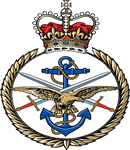Commemorated: | |||
| 1. Memorial: | Helles Memorial | Panel 264 to 269. | |
| 2. Book: | The (1921) Masonic Roll of Honour 1914-1918 | Pg.123 | |
| 3. Memorial: | The (1940) Scroll - WW1 Roll of Honour | 48B GQS | |
Awards & Titles: | Mentioned in Despatches | ||
Family :
Son of the late Dr. George Moncrieff Govan (I.M.S.) and of Frances Govan; husband of Muriel Cordon Govan (nee Henry).The couple had three sons and three daughters:
The eldest Rev. George William Govan was born in 1861 and became the Rector of Wittycombe, Carhampton, Taunton.
The second son Henry Maitland Govan was born at Almora, India, and was educated at Rossall School and Edinburgh University. He was a fellow of the Chartered Institute of Secretaries, London and a certificated civil engineer. He took up a post in the uncovenanted civil service in Burma in 1887 and hunted dacoits as a civil officer in one of the Upper Burma campaigns. He was made the secretary and engineer to the Akyab municipality in 1894.
The third son was Douglas Moncrieff Govan, born in 1875.
Education & Career :
University: St Andrews
Service Life:
Campaigns:
- North West Frontier 1895-1947, Northern India.
- Somaliland Campaigns 1900-1904, Africa.
- The First World War 1914-1918, World-wide.
| Unit / Ship / Est.: 5th Battalion Gurkha Rifles (Frontier Force) |
| Action : Gallipoli |
The Gallipoli Campaign was fought on the Gallipoli peninsula 25th April 1915 to 9th January 1916. in a failed attempt to defeat Turkey by seizing the Dardanelles and capturing Istanbul. Ill-conceived and planned, the initial effort by the Royal Navy failed to force passage through the Dardanelles by sea power alone. It was then realised that a land force was needed to support the project by suppressing the Turkish mobile artillery batteries. By the time all was ready the Turks were well aware and well prepared. Despite amazing heroics on the day of the landings only minor beachheads were achieved and over the succeeding 8 months little progress was made. Eventually the beachheads were evacuated in a series of successful ruses.
Despite Gallipoli rightly becoming a national source of pride to Australians and New Zealanders, far more British casualties were sustained, and these days the substantial French contribution is almost forgotten.
Detail :
His death was reported in the Dundee Evening Telegraph on 5th July, 1915
"The late Major D.M. Govan. Major Douglas Moncrieff Govan, 5th Gurkha Rifles, whose death is announced, was the youngest son of the late Dr George Moncrieff Govan, Indian Medical Service. He was born in 1875, and was gazetted to the Royal Sussex Regiment in 1896. he was promoted first lieutenant in 1899, and rose to company rank in 1905. He had served in the Indian Army since 1899. In 1897-8 he served during the operations on the north-west frontier, and he also active service in East Africa in 1902-4, taking part in the operations in Somaliland. His promotion to the rank of Major took place in the field."
A similar article appeared in the Broad Arrow of 24th September 1915.
"CASUALTIES - Army - Major Douglas Moncrieff Govan, 1st Bn. 5th Gurkha Rifles, who was killed in action on the 28th June at the Dardanelles, was the youngest son of the late Brig.-Surg. George Moncrieff Govan, 3rd Gurkhas, and of Mrs. Govan, of Almora, U.P., India. Born in 1875, he joined the Royal Sussex Regt. from the Militia in 1896, and transferred to the Indian Army in 1899. He was promoted captain in 1905, and major in December last. He saw active service during the operations in India of 1897098 and in the East African Expedition in Somaliland of 1902-04."
Masonic :
| Type | Lodge Name and No. | Province/District : |
|---|---|---|
| Mother : | Kitchener No. 2998 E.C. | Northern India |
| Joined : | Stewart No. 1960 E.C. | Punjab |
Initiated | Passed | Raised |
6th July 1908 | 3rd August 1908 | 14th September 1908 |
Source :
The project globally acknowledges the following as sources of information for research across the whole database:
- The Commonwealth War Graves Commission
- The (UK) National Archives
- Ancestry.co.uk - Genealogy, Family Trees & Family History online
- ugle.org.uk - The records of the United Grand Lodge of England including the Library and Museum of Freemasonry
Additional Source:
- Founder Researchers : Paul Masters & Mike McCarthy
- Researcher : Bruce Littley

